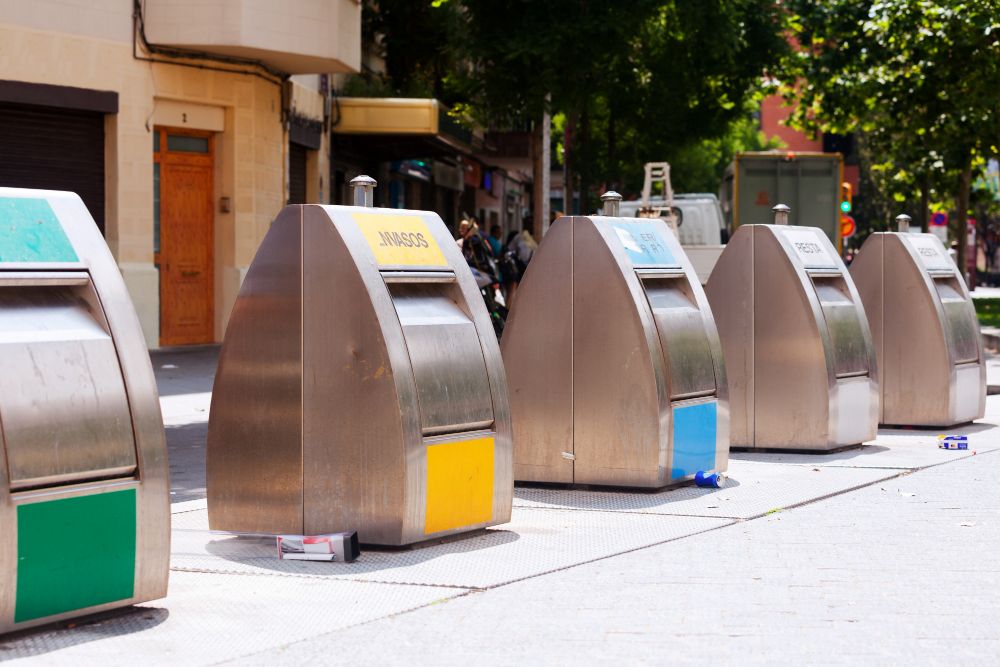
From Trash to Tech: Smart City Solutions in Waste Management
Introduction – Rethinking Waste in Modern Cities
Waste management has long been one of the most pressing challenges for cities worldwide. As urban populations grow, so too does the volume of waste generated—posing environmental, economic, and social challenges. Traditional collection and disposal systems often struggle to keep up, leading to inefficiencies, overflowing landfills, and unnecessary emissions.
But in the era of smart cities, waste is no longer just a problem to manage—it’s an opportunity to innovate. With the integration of digital technology, data analytics, and sustainable practices, cities can transform waste management into a driver of efficiency, circular economy, and urban sustainability.
At Smart City Strategies and Solutions, we help governments and organizations embrace these transformations, creating cleaner, more resilient urban environments. Learn more about our approach on our About page.
The Role of Technology in Modern Waste Management
Smart city solutions leverage real-time data and connected systems to improve every stage of waste management—from collection to recycling. Instead of reactive, one-size-fits-all approaches, cities can now adopt strategies that are dynamic and efficient.
For example, sensors embedded in waste bins can monitor fill levels, allowing waste collection trucks to adjust routes based on actual demand. This not only reduces fuel consumption and traffic congestion but also ensures cleaner streets and improved public health.

Smart Bins and IoT Sensors
One of the most visible innovations in waste management is the smart bin. Equipped with IoT sensors, these bins communicate their status to a central platform, notifying when they need to be emptied.
This approach provides several benefits:
- Reduced operational costs from optimized collection routes
- Lower carbon emissions from fewer unnecessary truck trips
- Cleaner public spaces through proactive waste removal
When scaled across a city, smart bins create a seamless waste ecosystem where technology ensures that waste is managed before it becomes a problem.
Data-Driven Waste Collection
Beyond smart bins, advanced analytics play a major role in waste collection optimization. With access to data on waste generation patterns, cities can:
- Adjust collection schedules by neighborhood or even street
- Allocate resources based on demand
- Predict seasonal or event-based waste surges
This data-driven approach makes waste collection not just a routine service but an adaptive system that evolves alongside the city.
Smart Recycling Systems and the Circular Economy
Effective waste management isn’t only about collection—it’s also about what happens after. Smart city solutions are enabling a circular economy, where waste is viewed as a resource rather than a burden.
AI-powered sorting systems can identify and separate recyclable materials with greater accuracy than manual processes, reducing contamination and increasing recovery rates. Meanwhile, digital platforms connect businesses and communities to recycling initiatives, promoting sustainable practices at the grassroots level.
The result is a system where fewer materials end up in landfills, and more are reintroduced into the economy as valuable resources.
Case Study – Barcelona’s Smart Waste Collection
Barcelona is a leading example of smart waste management in action. The city implemented a network of sensor-enabled waste containers that transmit fill-level data to municipal waste services.
This system reduced collection costs, improved recycling rates, and minimized disruptions to traffic and air quality. It also empowered citizens with digital apps that provide updates on collection schedules and recycling guidelines, reinforcing public participation in sustainability.
Challenges in Implementing Smart Waste Management
While the benefits are clear, challenges remain in deploying these systems at scale. High upfront costs, infrastructure upgrades, and integration with existing city systems can slow adoption. Additionally, public engagement is critical—without citizen cooperation, even the best technology can fall short.
This is why a strategic, ecosystem-based approach—like the Smart City Mandala™ we use at Smart City Strategies and Solutions—is essential. It ensures that technology, policy, and community engagement work in harmony.
Conclusion – Waste as an Asset in Smart Cities
The future of waste management lies in transforming trash into data, and data into smarter cities. Through IoT sensors, AI, and circular economy practices, cities can cut costs, reduce emissions, and create cleaner, more sustainable communities.
At Smart City Strategies and Solutions, we help cities move from waste management to waste innovation—turning challenges into opportunities for a greener future. Discover more about how we lead this transformation on our About page.
